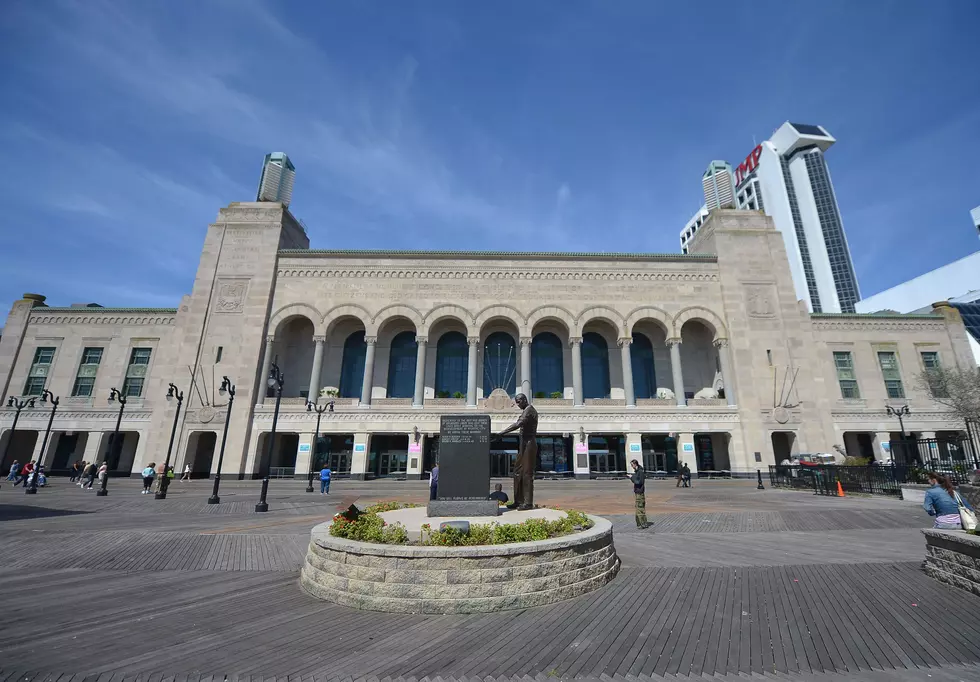
Will the summer drought affect NJ Christmas tree supplies?
While the summer drought in New Jersey has affected many lawns, flowers, gardens, and even crops, let’s look further down the line. Will it affect New Jersey’s supply of Christmas trees?
In North Jersey, the summer drought has not yet affected Christmas tree supplies, said Donna Allison Cole, executive secretary of The New Jersey Christmas Tree Growers Association, and owner of Cole’s Country Tree Farm in Alexandria Township, Hunterdon County.
She thinks South Jersey might be seeing more Christmas tree loss than the northern part of the state.
“We might have a 10 percent loss but that could be in general and not necessarily drought-related,” Cle said. But it’s not to say that the drought that causes the stress on the Christmas trees up north won’t be seen at a later date. It’s just not showing yet.
On Cole’s 40-acre land, there are 15 acres dedicated to Christmas trees. She said they have about 150,000 Christmas trees on the property.
Christmas trees are typically planted from late March to mid-April after the land has thawed out from the winter. That means with the spring rains, the seedlings have a good chance to develop a good root system to take them through the drier summer months.
“We just need the normal conditions of spring rains to carry the trees right through without irrigation,” Cole said.
At this moment, in general, if there is a great loss of Christmas trees due to the drought, prices will most likely be higher for consumers, she said.
Up north, there has not been much Christmas tree loss. However, Cole said, due to the demand for Christmas trees, and because in general, the prices will be a bit higher, prices of trees on her farm will most likely rise, as well.
Tim Dunne, owner of Woodsedge Tree Farm in Belvidere, New Jersey, and Vice President of the New Jersey Christmas Tree Growers Association said the drought has had an effect on newly planted seedlings on his farm, but little effect on larger trees ready for harvest.
“Effects may differ on some farms depending upon the farm’s soil type, the farm’s landscape position (valley vs. hillside), and how much rain they have had locally this summer. We are expecting a normal Christmas tree harvest this year. We are hoping for some fall rains to get our soil moisture levels back to normal,” Dunne said.
Some of the state’s driest conditions have been in Monmouth County. Jack Sangillo, owner of Anne Ellen Christmas Tree Farm in Manalapan told The Asbury Park Press that the hot, dry weather has killed some of the farm’s thousands of trees.
Cole said in Monmouth County, Christmas tree farms have more of a sandy-type soil, whereas up north, the soil is a lot rockier. Rocky soil absorbs moisture better than sandy soil. So, if the soil is sandy, and there has not been a lot of rain, that makes for a bone-dry farm, which is not ideal for growing Christmas trees.
Once the trees are brown, there’s no salvaging them, Cole said. Any green parts can be cut to make into wreaths but that’s really all that can be done.
“I think we will have another fantastic season. I think the worry comes with having enough trees to make the demand. I know last season, a lot of growers closed early because they were running out of their six and seven-foot trees,” Cole said.
She said farmers didn’t want to sell their four or five-foot trees. The trees grow about a foot a year so if the farmers sold them, they would be ruining this year’s crops for sale.
Depending on the farm’s location in the state, the summer drought will affect the supply of Christmas trees this season. But Cole said even without the drought, other farms may run short on supplies because of the high demand for trees, and quick sell-out of six and seven-foot trees.
She advised buying Christmas trees in the first couple of weeks of December just in case tree farms do close early.
But rest assured, she said. In Hunterdon County, she does not see an early closure. There will be enough trees for sale this holiday season because they plant every single year.
Big box stores like Home Depot and Lowes, which sell pre-cut Christmas trees, receive their trees from the Pacific Northwest, Cole said. They’re cut in August and September, stored in refrigerated box cars, then shipped all over the country. Therefore, the needle retention on these trees is never good, she added.
Be sure to put a freshly-cut tree in water as soon as you get it home. Add water every single day to give the trees better needle retention.
Jen Ursillo is a reporter and anchor for New Jersey 101.5. You can reach her at jennifer.ursillo@townsquaremedia.com
Click here to contact an editor about feedback or a correction for this story.
See 20 Ways America Has Changed Since 9/11
More From Rock 104.1










